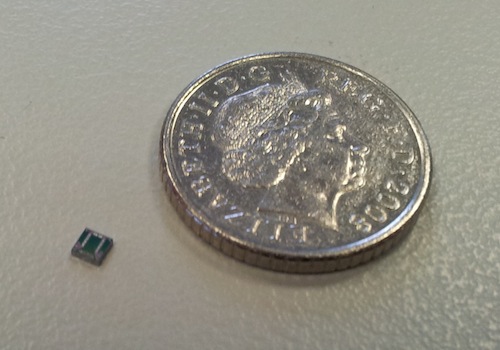Edinburgh-based Sofant Technologies has announced miniature antenna technology that it said could, “Transform the performance of smart phones and tablet PCs, making poor reception, dropped calls and short battery life things of the past.”
Following seven years research and development at The University of Edinburgh, Sofant aims to license its designs to global smart phone manufacturers and is projecting a turnover of over £10m in year five.
Sergio Tansini, CEO of Sofant, said, “Antenna design has not kept pace with the rapid evolution of smart phone technology. New communication protocols, such as LTE and 4G, mean more pressure than ever on existing antenna technology, further impacting smart phone performance and user experience.
“The reality is that, until now, the antenna has acted as a bottleneck to performance in mobile devices. As a result, every new generation of smart phone performs less well than its predecessor, resulting in dropped calls, lost signals, weak connections, slow internet and battery drain. Sofant’s high performance miniaturised steerable antenna will change the performance and user experience of smart phones forever.”
Sofant has integrated three core technologies to create the world’s smallest smart antenna. The family of two designs comprise the tunable RF MEMS modules and Sofant Intelligent Software. The technologies can be licensed individually or as a single smart micro antenna system. The company has already licensed an early technology demonstrator to a large OEM and attracted considerable interest from many leading manufacturers.
Sofant gave no specific further details on its technology, but did provide the following statement to Mobile Europe:
“As can be seen from the MEMs module picture, it’s a tiny device that is planned to be integrated within present RF chips or modules in order to eliminate overheads, and speed time to market.
“Our MEMS devices have a negligible power consumption, hence the advantage of using our technology. Our initial analysis shows that by integrating our smart antenna technology, we can save up to 90% of radiated power hence it can increase the mobile phone battery life significantly.”
The spinout of Sofant has been supported by Edinburgh Research and Innovation (ERI), the commercialisation arm of the University of Edinburgh.


